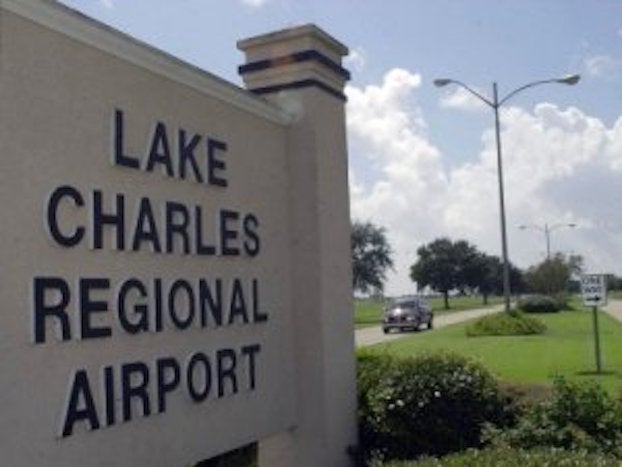Ivory Edwards: 24-year U.S. Army vet has no regrets, says he’s blessed
Published 5:11 am Saturday, November 11, 2023

- Ivory J. Edwards today at his home in Lake Charles, left, and during his Army days, right.
The U.S. Army drafted Ivory J. Edwards in 1953. He was obligated to serve his country for two years. He served for 24, earned a bronze star medal and multiple certificates of appreciation, and said he has no regrets. He would do it all over again. Not only that. He also thinks every high school graduate would benefit from a two-year enlistment.
It was peacetime when he was drafted. Cold War tensions were high, and the size of America’s military so low after World War II that it was troubling to the Truman administration.
“Everyone in my class was drafted,” Edwards said, “everyone except for one. They didn’t take him because he couldn’t hear out of one ear. I had just finished high school. Some joined before they finished.”
The possibility of their son fighting a war worried Edwards’ parents. His father, Earl, was a railroad worker and his mother, Emma Savoy Edwards, a housewife. When his mother received a letter addressed to her expressing a need for her son’s service, signed by Harry S. Truman, it made an impression.
The first two years were spent at Fort Chaffee in Arkansas (near Fort Smith). For several years after World War II, Camp Chaffee was placed on inactive standby status until the advent of the Korean War in 1950, which resulted in its reactivation as the Headquarters for the 5th Armored Division.
When his commitment ended, Edwards and five of his buddies were sitting at the train station, when he asked, “Y’all gonna work in the rice fields for the rest of your life?” That’s what the majority of the labor force did in Edwards’ hometown of Welsh. Edwards didn’t want to do that, and neither did his buddies. They re-enlisted for six more years.
On leave from Fort Gordon (Chamblee, Ga.) in 1957, Edwards remembers the storm, rising water, high winds, destruction and deaths associated with Hurricane Audrey. Something equally as memorable occurred during that leave. At the local Catholic Bizarre — he pronounces it with a Cajun accent — he gave a girl a penny to toss. She didn’t win the jackpot, but he did. He married Lora White on Dec. 7, Pearl Harbor Day, and they have been married for 66 years.
“I like to say my wife cost me a penny,” he said. They traveled the world together, and Edwards’ daughters, Tamara and Kim (Janet, a teacher couldn’t come to the interview) said it is their mother, her strength of character and her faith that kept her children and husband focused during the 24 years of his service. She made sure they went to church and excelled academically. All three graduated from college, and they’re proud to be “Army brats,” realizing that their travels, experiences, and adjustments to new schools in the United States and in Germany, where they might have been ahead or behind other students, helped make them who they are today. Home for the Edwardses is now Lake Charles, and it is filled with family photos.
“When I got ready to go to college is the year daddy retired,” Tamara said. “I went to McNeese. Lake Charles put us close to school, to Fort Polk and not far from Welsh and Roanoke. My mother grew up in Roanoke.”
Edwards didn’t talk to his daughters about the war. When he retired from the military, he went to work with Citgo and spent every free moment he could hunting and fishing. He credits staying active and eating healthy as what helped him stay active and mentally sharp.
He chose not to talk about the first time he had to kill an enemy or be killed except to say he recalled the bullets flying by, the incoming missiles … . Instead, he looks out the window, gives his head a shake and waits for a different question.
He was a member of the 720th Military Police Battalion’s B Company. Sent to Vietnam to provide security for fighting troops, they joined soldiers on the front line for three years, conducting patrols and ambushes, participating in search-and-destroy missions and defending local villages, according to a July 2023 article in Stars & Stripes. Their service marked the first time a U.S. military police battalion took part in infantry duties.
A U.S. Army, Europe and Seventh Army Fact File calls the 18th Military Police Brigade, to which Edwards belonged, as the most highly decorated Military Police unit in the Army, took part in 10 campaigns, and was awarded four meritorious unit commendations and streamers. The brigade was also awarded the Republic of Vietnam Cross of Gallantry with Palm for its outstanding service.
He had never told his daughters anything about the Vietnam War, not even about the bronze star medal for “meritorious achievement in ground operations against hostile forces,” until a visiting cousin pointed out its significance recently.
“Nobody asked me,” he said with a grin.
Edwards was part of a group that delivered supplies to 300 Montagnard (pronounced Mountain Yard) orphans after the Viet Cong attacked, conscripted soldiers and stole their food. The Montagnard were an oppressed tribal people in the Central Highlands, separate ethnically and culturally from the Vietnamese, until assimilation began. The autonomous area was abolished in the mid-1950s.
“When we got there, the children hugged us, grabbed our legs,” Edwards recalled.
In 1973, the 18th Military Police Brigade were among the last combat troops to leave Vietnam. Command suggested that Edwards and fellow soldiers put on civilian clothing for their homecoming because of war protests.
“I’m blessed, he said. “The war got into some people’s heads, and they never recovered.” He credits God for protecting him while serving and keeping his mind free of fear, and his wife for her support through it all.





